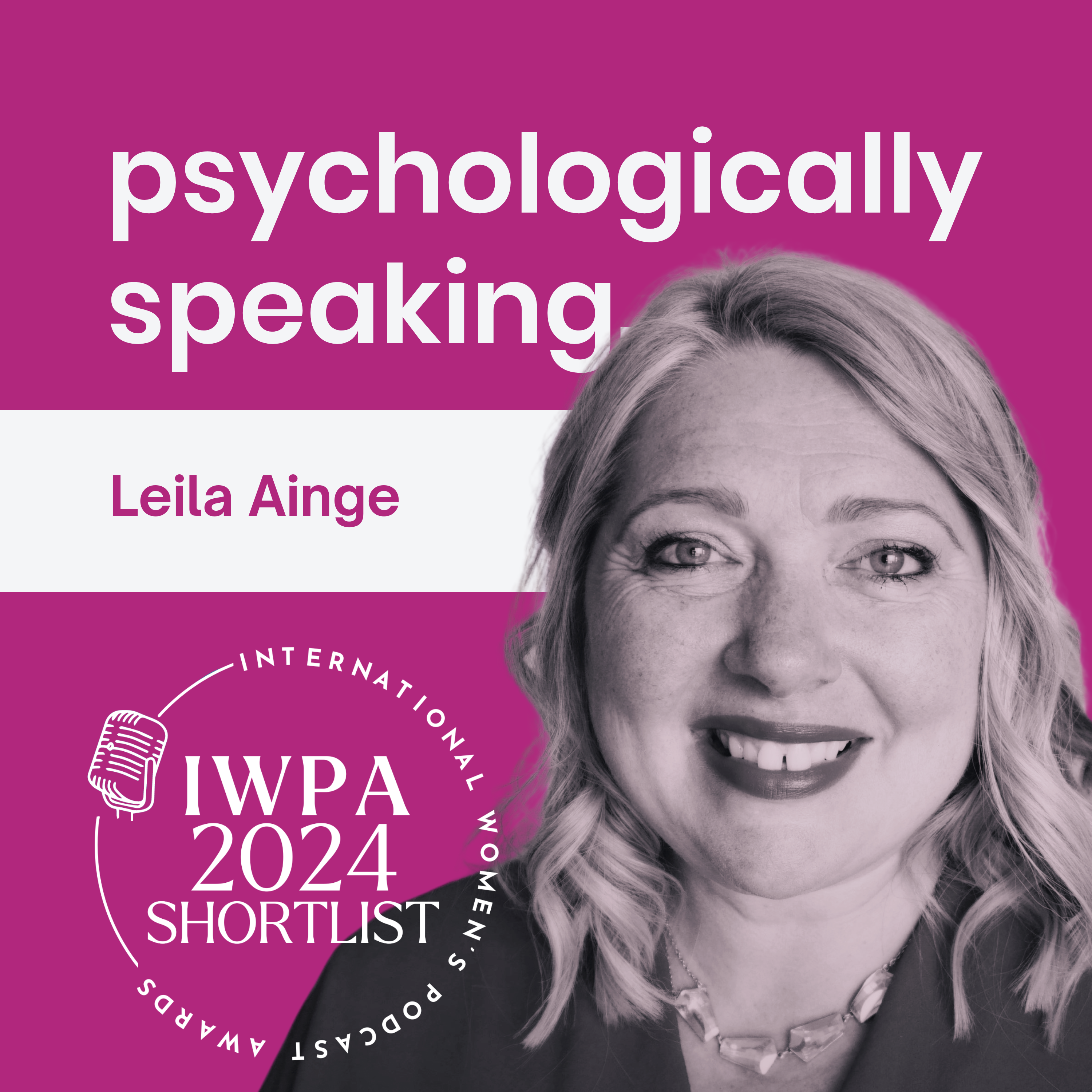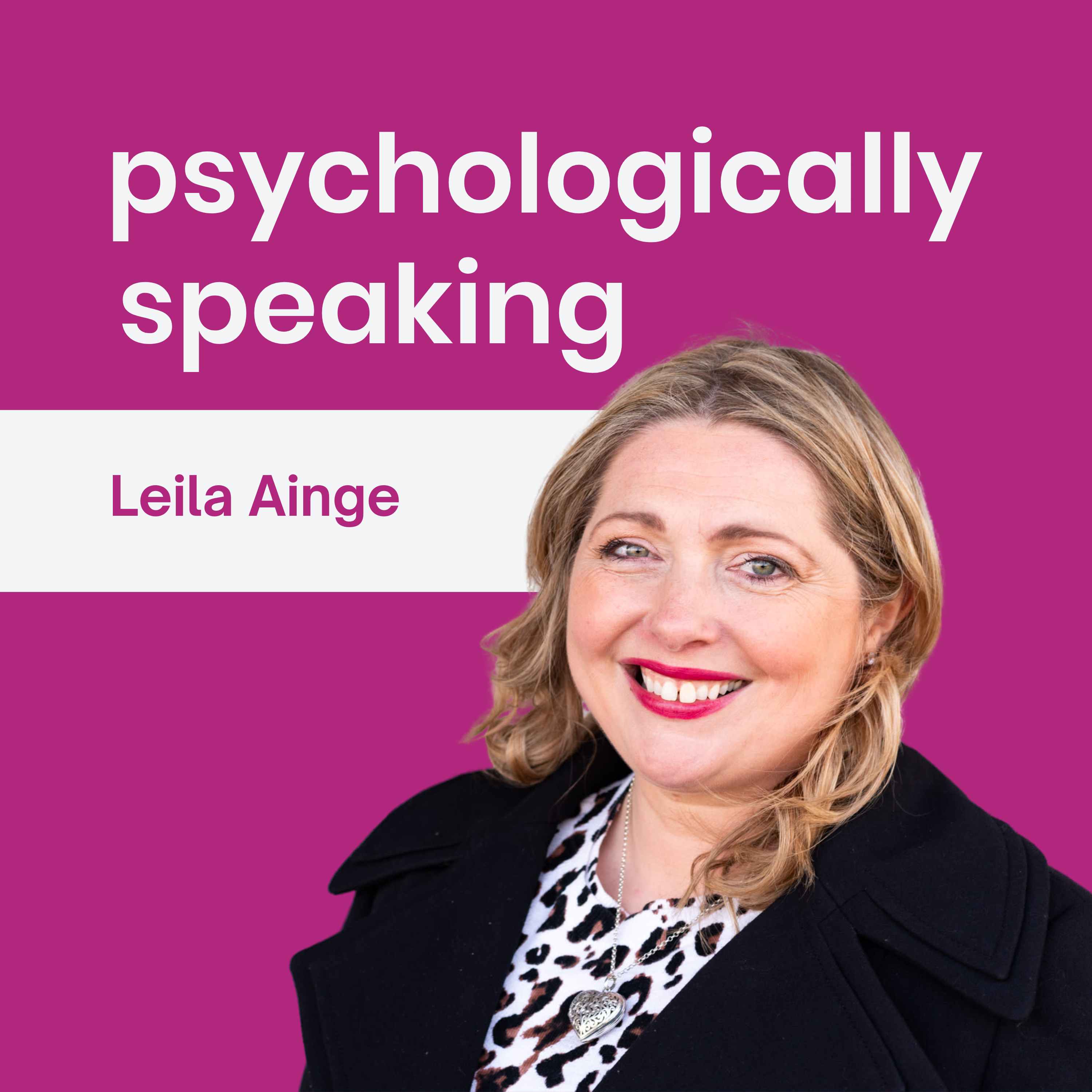Psychological Ghosts at Christmas: Reflecting on Regret, Unfinished Business, and Decision-Making
In this reflective conversation, Leila explores the themes of regret, uncertainty, and unfinished business as they relate to personal growth and decision-making.
Drawing inspiration from Dickens' A Christmas Carol, she discusses how psychological 'ghosts' can guide us in making better choices. Leila emphasizes the importance of embracing uncertainty, the potential of regret as a motivator, and the necessity of accepting imperfection in our lives. Through her own experiences, she illustrates how tackling unfinished tasks can lead to a sense of relief and momentum, while also acknowledging that not everything needs to be completed immediately. Ultimately, she encourages listeners to recognize their psychological ghosts and use them as tools for progress rather than obstacles.
Transcript
As the year winds down, it's natural to reflect on the choices we've made and the tasks
we've left unfinished and the comparisons we can't seem to stop making.
2
:Inspired by Dickens' A Christmas Carol, I've been thinking about the psychological ghosts
and the role they play in our lives.
3
:What can they teach us about regret, uncertainty and the importance of finishing or
letting go of what we start?
4
:Decision making has been a core part of my work, whether managing projects or leading
teams.
5
:Over the years, I've learned that while careful planning is important, it's often the
ability to embrace uncertainty that keeps things moving.
6
:We like to think that successful projects follow a clear, predictable path, but the truth
is uncertainty is always part of that process.
7
:It's what gives projects their vitality, especially when teams feel empowered to make
decisions.
8
:Without this momentum,
9
:projects can stall and that sense of stagnation is both demoralizing and costly.
10
:Interestingly, uncertainty also has a way of paralyzing us through a phenomenon called the
disjunction effect.
11
:So in one experiment, people were asked if they could book a trip to Hawaii before
receiving their exam results.
12
:Those who knew they'd passed or failed were more likely to make that decision to book the
trip while they're still waiting for the results.
13
:froze, they were paralysed, despite the outcome actually being irrelevant to the decision
to go on holiday or not itself.
14
:It's a phenomenon that feels familiar.
15
:The fear of uncertainty often keeps us from acting, even when we know the decision itself
won't change based on the unknown.
16
:In projects, this can lead to analysis paralysis.
17
:It's an exhausting state where progress slows, painfully so.
18
:and opportunities are missed while we go through lots and lots of information and try to
understand everything in detail in case we make the wrong decision.
19
:My reflection this year has been that we can't and shouldn't eliminate uncertainty and I'm
not suggesting avoidance as a wholesale approach to getting ahead and getting stuff done.
20
:After all, it's a tenet of psychological safety that we confront uncomfortable truths.
21
:But we can often make a small decision.
22
:Decisions create momentum and momentum moves us forward.
23
:So today I'm going to tell you about a small decision I've made that might lead to a big
and some renewed vitality for:
24
:The phrase no regrets is often thrown around as though regret is inherently negative.
25
:And if you've listened to my podcast for a while, you know that I don't like definitive of
something always being bad or something always being good.
26
:I like that gray space in between.
27
:In A Christmas Carol, we see how Scrooge regrets his uncharitable choices.
28
:And part of his character transformation is how he comes to regret and make good on his
actions against others.
29
:The tale in one respect is laid upon the consequences of one decision leading to another
in a downward and miserly spiral for this main character.
30
:But I've come to see regret differently.
31
:Regret can be a powerful motivator when it's reframed as a learning tool.
32
:For 17 years after I finished my business course, I carried quite a deep regret of not
topping up to a full degree.
33
:And at first it felt like a huge weight and it did become a bit of a chip on my shoulder.
34
:Over time though, I came to see that I've made very good decisions and actually I was
where I wanted to be in my career.
35
:Instead of regret, it started to push me to pursue education in a different discipline.
36
:And what started as regret became a source of motivation and culminated in a new career in
psychology.
37
:We've all got unfinished projects that linger in our minds from half written emails, and I
am the queen of starting and not sending emails by the way, to abandoned hobbies.
38
:And there's a helpful reason that they stay there because our brains hold onto incomplete
tasks more than completed ones.
39
:So we don't forget them.
40
:Comes in very handy in some disciplines and in some work areas.
41
:This year, I made it a priority to clear out some of my own unfinished business.
42
:Tackling long delayed home renovations and decluttering possessions gave me a surprising
sense of relief.
43
:Each task I completed felt like a small weight had been lifted.
44
:And a few weeks ago, I sewed up 10 sets of fabric bunting.
45
:Now each triangle had been cut, stitched, turned inside out and ironed five years ago.
46
:Then we moved house.
47
:And the easy part of the task, sewing each triangle onto a single ribbon, stayed
unfinished in that box that I have moved around from room to room ever since.
48
:For me, this was a classic case of a task that wasn't difficult or interesting enough to
get restarted.
49
:And the original motivation, as originally been fundraising for a charity run, had long
passed and I'd met that target.
50
:So I had to force myself into a deadline to complete the lot in a timed session.
51
:It worked and next year, heads up, you might be getting the gift of bunting if you are my
dear friend.
52
:But not everything needs to be finished.
53
:And I've been struggling with my PhD, a monumental commitment for anybody.
54
:And it has at times felt overwhelming because I've not got it.
55
:The hypothesis and the question, they're just not nailed.
56
:And the temptation at this point is so strong.
57
:The temptation to quit is strong.
58
:But so is the fear of regret.
59
:So I've started to ask myself whether it's okay to say, not now.
60
:instead of never.
61
:Can I trick my brain out of this weird space of unfinished business and regret?
62
:After all, leaving something unfinished can be a form of self-care too, a way of maybe
saving space for future growth.
63
:To do this, I need to tackle an uncomfortable truth of comparison.
64
:It often complicates our relationship with unfinished business.
65
:And during the holidays especially, we compare ourselves to others, how their homes look,
what they've achieved, and even their sense of joy.
66
:It's easy to feel like we're falling short.
67
:And this kind of comparison can be especially challenging in spaces of ultra visibility.
68
:It's been a reoccurring theme as I navigate and juggle my career and PhD.
69
:and grapple with some costs.
70
:Most PhD journeys can feel lonely and solitary and the temptation to compare feels like it
should be a comfort blanket that other people's feel this way too.
71
:And it's all okay, except it isn't.
72
:It isn't okay to feel this way all of the time, is it?
73
:This year, earlier in Psychologically Speaking on the podcast, I talked about imposter
phenomenon.
74
:and highlighted the way that nuanced.
75
:This year's earlier Psychologically Speaking podcast on imposter phenomenon highlighted
the nuance ways though in which we use comparison.
76
:So I can take my own research and I can see comparison as a tool that can be helpful too.
77
:There was a curious moment for me when I took part in the LinkedIn co-author 2024 rewind
and it was like AI had stripped back all of my concerns and doubts and said here this is
78
:what you did this year and you have made progress.
79
:For balance, it also hallucinated another series of psychologically speaking, so perhaps
it was positively biased.
80
:But anticipated regret is another layer to unpack.
81
:We try to predict how we'll feel about a decision in the future, often freezing in the
process.
82
:Last month, I did make that hard decision to suspend my PhD for a specific period of time.
83
:I can't anticipate a full stop right now, and I wasn't in the best place to make that big
decision.
84
:It wasn't easy, but it felt necessary to make smaller decisions and sometimes stepping
back is the best way to regain perspective.
85
:As I look back on this year, I find it curious but unsurprising then that I've prioritised
steps to resolve a lot of my unfinished business.
86
:I've absolutely been projecting the frustration of the PhD into other areas where it's
easier to see the next step.
87
:And a lovely cascade of momentum started.
88
:We finally repased our leaky roofs, a project that had been on hold for far too long.
89
:And this opened the door to other long overdue rewiring and replastering.
90
:But I've also come to accept that not everything needs to be finished right away.
91
:I'm quite an impatient person and I like to do things quickly and I like a sense of
accomplishment.
92
:But my home is actually a metaphor for my imperfect life.
93
:We have half-strip wallways, renovated rooms, and those rooms I shut the door on to avoid
for whole days at a time.
94
:Granted, nine-year-olds do come with endless pieces of Lego and random Pokemon cards,
but...
95
:I've also got rooms that need proper gutting.
96
:But I can see or imagine a way forward.
97
:Some things can stay as in progress, serving as reminders of the journey we're on.
98
:Life doesn't need to be perfectly tied up in a bow or even need to go to plan to be
meaningful.
99
:And this is what I read when I saw what AI had interpreted for my ear.
100
:The ghosts of past, present and future in A Christmas Carol weren't there to overwhelm
Scrooge with information and endless options and what-ifs.
101
:They were there to show him the bigger picture and inspire him to act.
102
:In the same way, the psychological ghosts of regret, uncertainty and unfinished business
can guide us to better decision-making if we let them.
103
:So as the year comes to a close, I'm taking stock.
104
:I want to acknowledge my psychological ghosts, but they won't hold me back from success.
105
:Some things need to be finished and others can absolutely wait and that's okay.
106
:Life is after all, a work in progress.

